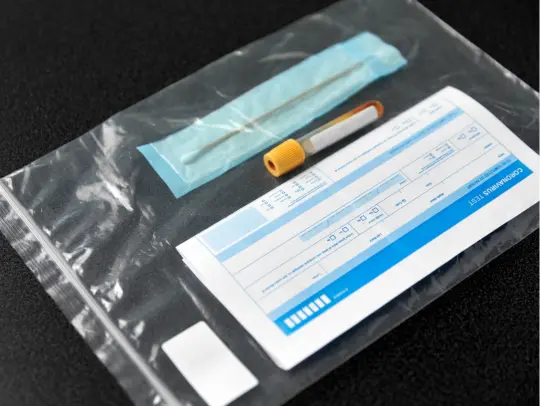
Male Impotence Symptoms Include Fatigue, Stress, and Low Libido
What is male impotence?
As men age, they may experience problems with male impotence, a common sexual disorder that prevents men from getting an erection for sexual activity. Essentially, anything that restricts normal blood flow to the penis can cause male impotence. This includes excessive alcohol consumption, drug use, prescription medications, medical conditions, acute injuries, and fatigue. Psychological problems, including depression and stress, can also trigger male impotence.
While male impotence is not the same as low libido, the two conditions are often related. Male impotence can cause performance anxiety, which reduces your desire for sex. By receiving treatment for male impotence, you can rebuild your confidence and restore a healthy libido.
Male Impotence in Men
Male impotence can be caused by physical or psychological factors. Almost every man has problems achieving an erection occasionally. However, if you are experiencing erection problems on a regular basis, you might be suffering from male impotence. If performance issues are affecting your sex life or causing problems in your relationship, it might be time to see a doctor.
A thorough physical examination can rule out an underlying medical condition. If your doctor has ruled out a physical disorder, you can start exploring the psychological factors that may cause male impotence. Your doctor can recommend a licensed counselor to help you work through psychological issues and problems in your relationship.
Fatigue, Stress, Low Libido, and Male Impotence
Men with male impotence often report feeling fatigue and stress. It’s also common for men with male impotence to have problems with low libido. Fatigue and stress from the demands of daily life can lead to male impotence. Poor performance in the bedroom can cause anxiety and low libido, leading to a viscous cycle. It’s important to realize that you’re not alone. Over 20% of men are worried about sexual performance issues. If this sounds like you, taking steps to lower your stress levels and decrease fatigue can improve your sexual performance, increase your libido, and help you regain an active sex life.
Medical Disorders, Diseases, and Male Impotence
Diseases and underlying medical disorders can also cause male impotence. Common health conditions, including heart disease, hypertension, and diabetes are known to cause male impotence in some men. Additionally, certain prescription medications can affect sexual function, including HIV medications, SSRIs used to treat anxiety and depression, and hair loss treatments. Mental disorders, including depression and anxiety, can also cause male impotence in some men. If you have any of these conditions, be sure to tell your doctor.
Low testosterone levels can also cause male impotence and low libido. As men get older, testosterone levels naturally decrease. This can lead to unwanted sexual side effects. Ask your doctor to check your testosterone levels. Your doctor might also want to test your thyroid and prolactin levels, since these hormones can also have an impact on libido and male impotence.
Performance Anxiety and Male Impotence
Fortunately, there are many treatments for male impotence. The key to successful treatment is identifying the root cause of the problem. If a physical examination reveals an underlying medical condition, treating the disease or disorder usually resolves male impotence. You may have a disorder like hypertension or diabetes and not even know it.
If hormone levels are causing male impotence and low libido, treating the hormonal imbalance will usually resolve the problem. It’s not difficult to get treatment for low testosterone. It’s as simple as going to the doctor for an injection. Alternatively, you can regulate your hormone levels at home with a skin patch or topical gel.
In some cases, your doctor might be able to recommend medication changes that can improve sexual function. If you suffer from depression or anxiety, treatment can help you restore a healthy sex life. If you regularly consume alcohol in excess, or if you have a drug abuse problem, seek out a reputable treatment program.
If confidence issues or performance anxiety is causing male impotence, counseling is usually the best option. If fatigue or stress is causing male impotence, you can take steps to reduce your stress levels and get more rest and relaxation time. To feel your best, stick to a regular exercise program, eat a balanced diet, and make time for fun activities. If relationship problems are causing male impotence, your doctor can recommend a licensed counselor to help you work through your relationship problems and improve your sex life.
Treating Male Impotence
If you’re having problems with male impotence, consider working with one of the physicians at AccessRX. With telemedicine, you can gain access to FDA-approved prescription medications used to treat male impotence, including Viagra, Cialis, Levitra, Stendra, and Staxyn. Your doctor can help you determine the cause of male impotence and recommend an appropriate treatment plan for your situation.









































